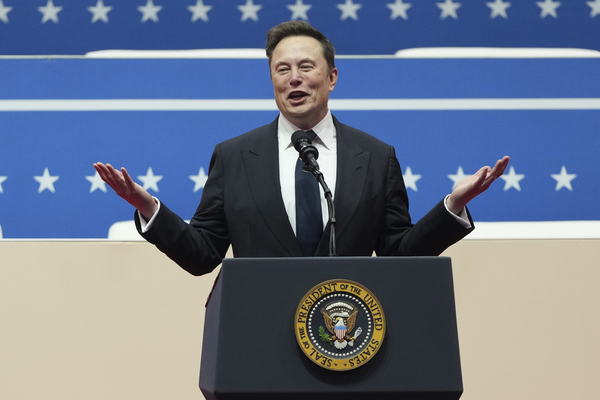Elon Musk has accused the Federal Emergency Management Agency (FEMA) of misusing disaster relief funds to provide luxury housing for undocumented migrants in New York City. However, local officials have denied his claims, calling them misleading and inaccurate.
On Monday, Musk alleged on social media platform X that FEMA had allocated $59 million in disaster aid to house migrants in upscale hotels. He suggested that this violated federal law and took money away from American citizens in need. His post quickly gained attention, fueling debate over government spending and immigration policies.
In response, New York officials pushed back against Musk’s statements, emphasizing that no federal disaster relief funds were being used for luxury accommodations. Liz Garcia, a spokesperson for New York City Mayor Eric Adams, stated that “none of these funds are being used for luxury services for people.” She clarified that any financial assistance provided to migrants was part of existing humanitarian programs and not a diversion of emergency relief funds.
The controversy escalated when acting FEMA Administrator Cameron Hamilton responded to Musk’s post. Using his official X account, Hamilton initially seemed to support Musk’s claims by stating that all such payments had been suspended and that personnel would be held accountable. His comment added to the confusion surrounding the situation, leading many to question FEMA’s role in assisting migrants.
FEMA has not officially confirmed any suspension of funds or wrongdoing. The agency is responsible for distributing disaster relief to communities affected by natural disasters, and any claims of misallocation are typically investigated thoroughly before actions are taken. Experts point out that Musk’s accusations reflect growing political tensions over how federal funds should be used, particularly in cities facing large numbers of arriving migrants.
Musk’s criticism comes at a time when immigration and federal spending remain hotly debated issues in the United States. Supporters of strict immigration policies argue that government resources should prioritize American citizens, while others emphasize the need to provide basic humanitarian assistance to migrants, many of whom are fleeing dangerous conditions.
The back-and-forth between Musk and government officials highlights the challenges of misinformation in public discourse. While Musk’s influence can shape narratives quickly, officials stress the importance of verifying facts before drawing conclusions. As the debate continues, FEMA and city leaders will likely face more scrutiny over how resources are allocated in response to both natural disasters and humanitarian crises.

